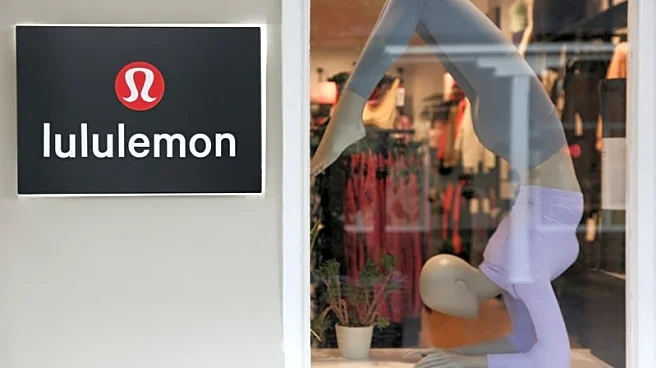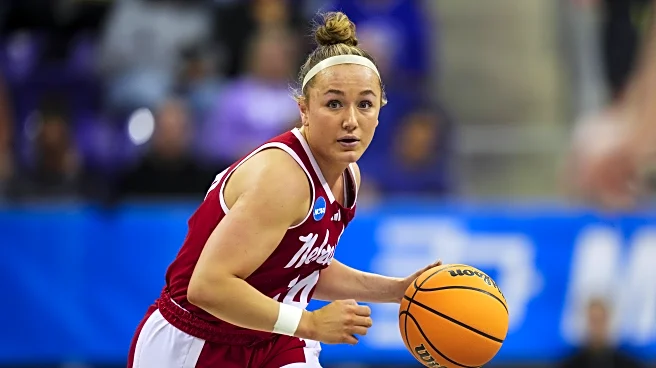(Reuters) -Lululemon Athletica slashed its annual revenue and profit forecasts on Thursday, signaling a slowdown in demand going into the crucial holiday season as consumers cut down spending, alongside tariff pressures.
Shares of the company fell about 14% after the closing bell.
The sportswear maker's new products have failed to spark a wave of buying from consumers grappling with inflation and the Trump administration's volatile trade policy.
Lululemon's dour forecast for the second half of the year
comes at a time when U.S. holiday spending is expected to see its steepest drop since the pandemic as Gen Z shoppers in particular pull back on spending, according to a PwC survey.
The outlook includes a tariff hit of about $240 million on gross margin, including mitigation efforts, pricing actions, current higher levels of tariffs on imports into the U.S. and the removal of the de minimis exemption, the company said.
De minimis is a U.S. customs exemption that allows duty-free entry and minimal paperwork for international shipments under $800. The exemption removal became effective on August 29.
The company, which introduces new product variations every Thursday said in June it was planning to take strategic and modest price hikes alongside attempts to cut costs and negotiate with vendors, in a bid to reduce tariff impacts.
Lululemon manufactured 40% of its products in Vietnam, and sourced 28% of its fabrics from mainland China, as of 2024, posing risks as goods imported from these countries to the U.S. face heavy duties.
The yogawear firm now expects annual revenue between $10.85 billion and $11 billion, compared with its prior forecast of $11.15 billion to $11.30 billion.
It also forecast annual profit between $12.77 and $12.97 per share, compared with previous expectations of $14.58 to $14.78 apiece.
Revenue for the second quarter, ended August 3, rose 7% to $2.53 billion, largely in line with analysts' expectations, while earnings per share of $3.10 beat estimates of $2.88, according to data compiled by LSEG.
(Reporting by Neil J Kanatt in Bengaluru; Editing by Alan Barona)
















